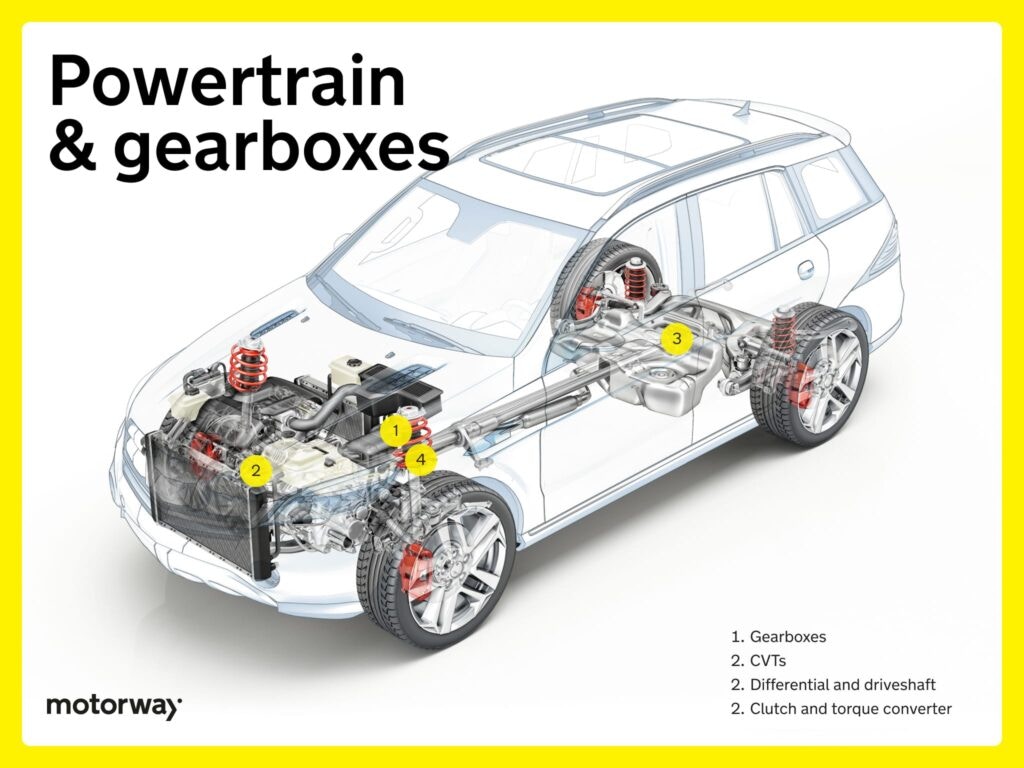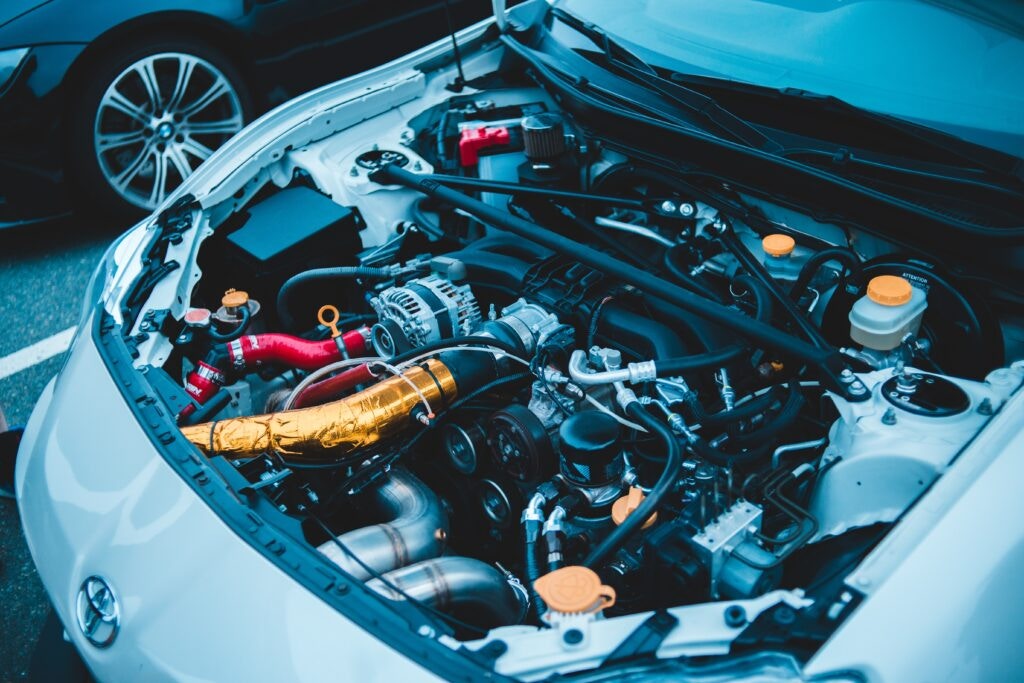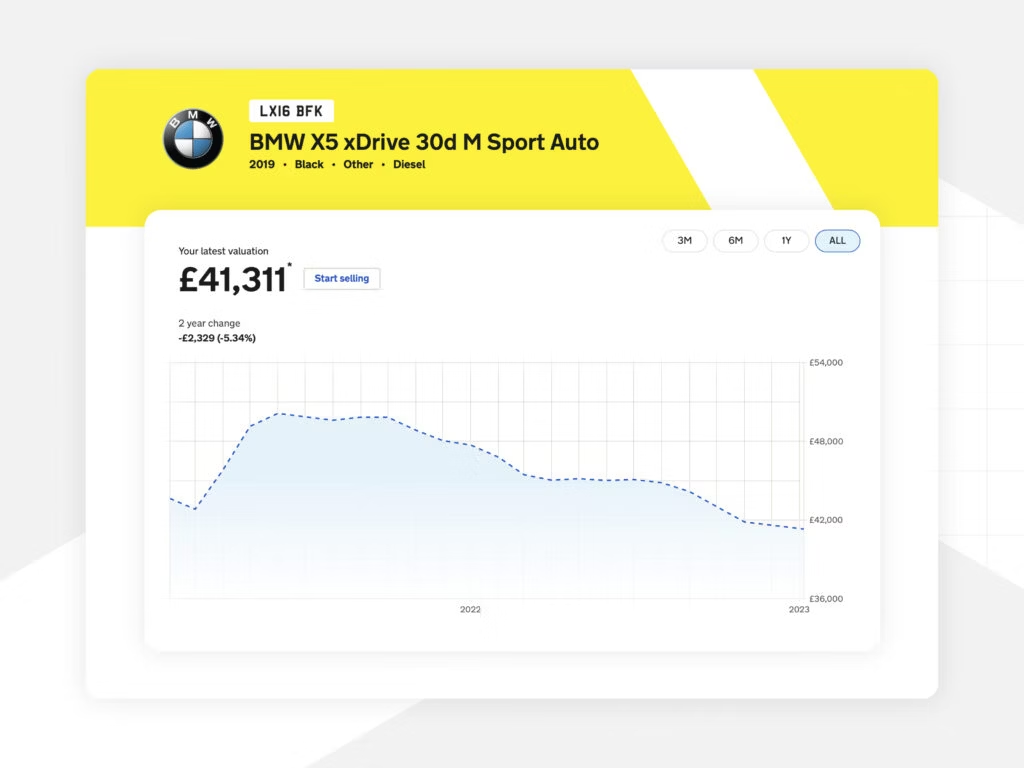How much does it cost to replace a clutch?
In a manual car, your clutch is absolutely essential for starting up, and changing gears.
Ever been warned not to ‘ride the clutch’? It’s for good reason. A worn or broken clutch can not only create a bumpy ride, but put the brakes on driving altogether. Taking good care of your clutch is essential to your car’s health and overall performance.
While clutches can be expected to last at least 50,000 miles, the need for replacement can come earlier. In the UK, replacing a clutch (manual or automatic) can run from £300 to £900, depending on your car’s make, model, and the extent of the damage. Without maintenance, a faulty clutch could lead to problems that classify your car as a write-off.
In this comprehensive guide, we’ll break down clutch replacement expenses for popular models, helping you budget effectively whether you’re looking to sell your car or just make sure it’s in top shape.
- What is a clutch?
- Average clutch lifespan
- Clutch replacement signs
- Does a damaged clutch affect my car’s value?
- Clutch replacement costs
- Extend your clutch’s lifespan
- FAQs
What is a clutch?

The clutch is a critical component in your car’s transmission system, connecting the engine to the transmission. This allows the driver to seamlessly engage (or disengage) power to the wheels, moving your car forward.
The clutch has three main parts: the clutch disc, which connects to the transmission and engine; the pressure plate, which exerts pressure on the clutch disc; and the engine flywheel which stores rotational energy. Together, these components enable smooth gear changes.
In manual transmissions, the driver operates the clutch directly when changing gears, whereas automatic transmissions do this automatically via the torque converter.
Average clutch lifespan

The lifespan of a clutch varies based on driving habits, vehicle type, and car maintenance. Generally, a clutch can be expected to last between 50,000 to 100,000 miles.
Regular maintenance, smooth driving, and avoiding excessive clutch slipping can contribute to a longer lifespan and reduce the need for clutch replacements.
Given the complexity of the transmission system, replacing your clutch can be an expensive endeavour, but one essential to the health – and future value – of your vehicle.
Clutch replacement signs

❌ Difficulty changing gears
Feeling resistance or having trouble shifting gears? You may have a failing clutch. This can result from a worn clutch disc or problems with your car’s hydraulic system, which should be addressed as soon as detected.
❌ Car won’t move
If your car won’t move despite its engine running and gears engaged, your clutch may have failed. A worn-out clutch disc, which prevents power from transferring between the engine and the transmission is usually the culprit in these cases.
❌ Unusual noises
Noises coming from your transmission system can also signal clutch damage or failure. Do not ignore these, as problems get worse over time.
❌ Burning smell
A burning smell is often caused by a slipping clutch and can indicate clutch overheating. Slipping results from wear or improper adjustments and is common during aggressive driving or heavy traffic, where you’re switching gears constantly.
❌ Higher biting point
A higher-than-usual biting point, where the clutch engages, signifies wear on the clutch disc. This can lead to difficulties in smooth gear changes and requires attention to prevent complete transmission failure.
Does a damaged clutch affect my car’s value?
Yes, a faulty or damaged clutch will most likely contribute to a depreciation in value. However, it’s the extent of the damage and whether your clutch has been repaired or replaced that determines how much your vehicle’s value is impacted.
A car with a damaged clutch may be seen as having potential mechanical issues, which could lead to concerns for potential buyers about future maintenance costs and drive down resale values by hundreds of pounds. If the clutch has been repaired professionally and there are records to prove it, it might lessen the impact on the car’s value compared to a vehicle with an unresolved or known clutch issue.
If your car is older and has a history of clutch issues, and you’re willing to get your hands dirty, you may want to consider selling your car for parts.
Clutch and flywheel replacement costs
Various factors impact clutch and dual mass flywheel replacement costs. For ease, we’ve pulled together a breakdown of average clutch replacement costs based on vehicle type.
Remember, the below are estimated replacement costs – consult your mechanic for a more accurate estimate for replacing the clutch in your vehicle.
| Vehicle type | Average clutch replacement cost | Flywheel replacement cost |
| Small cars | £300 to £500 | Additional £150 to £300 |
| Medium cars | £350 to £600 | Additional £150 to £300 |
| Larger cars | £400 to £800 | Additional £150 to £300 |
| Luxury cars | £500 to £900 | Additional £150 to £300 |
For even more specific info, see below for average clutch replacement costs for some of the most popular models on UK streets today:
| Vehicle make and model | Average clutch replacement cost |
| Audi A4 | £500 to £800 |
| BMW 1 Series | £500 to £800 |
| Fiat 500 | £300 to £500 |
| Fiat Punto | £300 to £500 |
| Ford Fiesta | £350 to £550 |
| Nissan Qashqai | £400 to £600 |
| Peugeot 208 | £350 to £550 |
| Peugeot 308 | £400 to £600 |
| Toyota Yaris | £350 to £550 |
| Vauxhall Corsa | £300 to £500 |
Extend your clutch’s lifespan

✅ Smooth driving habits
Adopt a gentle driving style to reduce unnecessary strain on your clutch. Aggressive driving, such as frequently riding the clutch or abrupt gear changes, accelerates wear and shortens clutch lifespan.
Driving conditions can also impact your clutch’s lifespan. Stop-start traffic can contribute to increased clutch wear due to frequent engagement and disengagement. Hilly terrain or consistently driving on uneven surfaces can also lead to increased wear-and-tear. As a proactive measure, drive calmly and smoothly regardless of the terrain.
✅ Proper gear engagement
Avoid forcing or grinding your car’s gears to prevent premature clutch wear. Preserve the health of your clutch with smooth transitions between gears.
✅ Avoid excessive idling
Prolonged idling can contribute to increased heat and wear on your car’s clutch. If your vehicle is stationary, engage the neutral gear rather than holding down the clutch pedal to minimise unnecessary stress on the system.
✅ Maintenance and regular inspections
Schedule routine inspections with a qualified mechanic to identify early signs of clutch wear. Catching issues, such as gears slipping or unusual noises, early on allows for timely repairs and can prevent more extensive damage. The same goes for timely replacement of worn components.
✅ Minimise towing heavy loads
If possible, avoid towing heavy loads beyond your vehicle’s recommended capacity. Towing puts extra strain on the clutch, which can shorten its lifespan. If towing is unavoidable, drive cautiously and consider upgrading to a heavy-duty clutch if recommended for your vehicle.
Like the weight of your load, the weight of your vehicle can decrease your clutch’s lifespan by increasing strain. This is especially true for cars used for towing.
✅ Use quality parts
The type and quality of the clutch kit used during replacement can impact overall longevity. Original Equipment Manufacturer (OEM) or high-quality aftermarket parts tend to last longer.

FAQs
Is it worth replacing my car’s clutch?
Yes, replacing a worn clutch enhances performance and prevents further damage. It’s a worthwhile investment for smooth driving and avoiding more expensive repairs. Plus, a top-notch clutch will help you get the highest price for your vehicle if and when you choose to sell your car.
Is it difficult to replace a clutch?
Yes! Replacing your vehicle’s clutch involves intricate work on your car’s transmission system. This is a substantial task and should be handled by your local garage, who possess both the professional expertise and specialised tools to properly install a new clutch and get you back on the road safely.
How much does it cost to replace a clutch on a motorcycle?
Motorcycle clutch replacement costs vary but generally range from £200 to £500. The bike model, parts used, and labour costs all impact the final repair bill.
What is the function of the clutch plate?
The clutch plate engages your vehicle’s transmission system by connecting (or disconnecting) the engine’s power to the gearbox. It facilitates smooth gear changes in a manual transmission, which are essential for controlling speed and power distribution.
How can I track the value of my car?

A damaged or failing clutch can impact the valuation of your vehicle. But what if you don’t know what your car’s value is to begin with?
While it’s true that car value depreciates over time, just how much that value changes varies from vehicle to vehicle. For a free and reliable monthly price alert on up to six vehicles at once, use Motorway’s Car Value Tracker.
With Motorway’s free tool, you can check your car value to choose the best time to sell, and make informed choices about investments in your car’s maintenance.
Need to sell your car?
Want to learn more about owning, maintaining, and selling your car? Check out more of our guides here, covering everything from Clean Air Zones to car tax, and plate changes to part exchange.
- Sell my car
- Track your car value
- What are the most expensive parts of a car to replace?
- Car anatomy: what are the parts of a car?
- How much does it cost to replace a gearbox?
- How much does it cost to replace a car engine?
- How much does it cost to replace a car suspension?
- How much does it cost to replace brake pads?
- How much does it cost to replace a windscreen?
- How much does it cost to replace a head gasket?
- How much does it cost to replace a cambelt?
- How much does it cost to replace a car battery?
- How much does it cost to replace a car door?
- How much does it cost to replace a car radiator?
The information provided on this page is for general informational purposes only and should not be considered as professional advice.